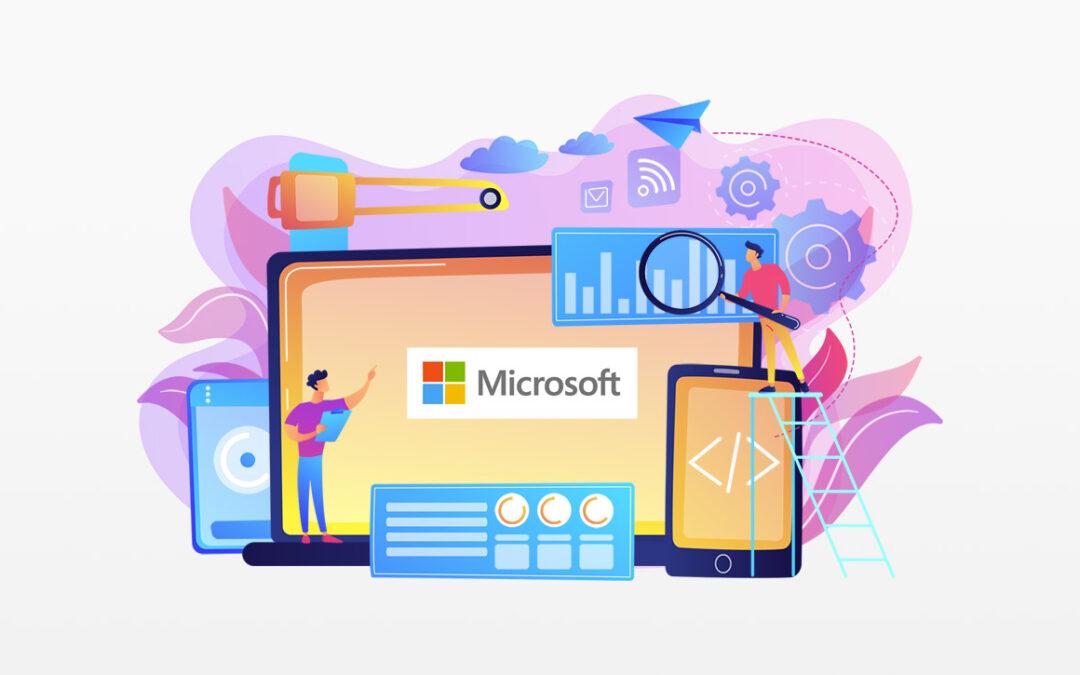Compared with its rivals Amazon and Google, Microsoft Azure is sometimes perceived to be the “enterprise cloud”. It’s true that Azure is business-centric, with capabilities such as AI, IoT, and blockchain putting it at the cutting edge. However, our Azure migration consultants have helped organisations of all sizes make effective use of the Microsoft cloud.
From SMEs needing simple environments through to enterprises with large server farms, the benefits of migration to Microsoft Azure span the whole business spectrum. In this article, we want to highlight the top benefits we have seen as Azure consultants.
1. Reduced costs
The great advantage of Azure is that costs reflect usage—not infrastructure, maintenance, or support. Azure is incredibly cost effective when set up correctly, an area where experienced Azure migration consultants show their worth. A well-configured Azure service is five times less expensive than the Amazon equivalent. And whenever you need to scale up, Azure is ready to meet the demand.
2. Greater productivity
Compared with on-premises computing, IT teams typically spend 40 percent less time on support with Azure. And the Microsoft cloud also has a host of services that enable end-user productivity. Azure Active Directory, for example, allows single sign-on to thousands of cloud applications such as Office 365, Salesforce, and DropBox. That means faster onboarding and the ability to work effectively at any time, anywhere.
3. Stronger security
Cybersecurity experts are a rare commodity, beyond the reach of many smaller organisations. Azure guarantees your security with a team of 3,500 cybersecurity experts who are constantly monitoring and adapting to counter global threats.
The vast majority of Azure security issues are caused by incorrect configuration, rather than platform failure. This is why a professional Azure consultant is a crucial asset in ensuring a secure migration.
4. Faster recovery
Azure Site Recovery has a recovery time objective (RTO) SLA of two hours. That is a massive reduction on the typical on-premises recovery time of eight hours.
The Site Recovery service works by replicating workloads running on physical and virtual machines (VMs) from a primary site to a secondary location. When the primary location is running again, you simply fail back from the secondary location.
5. Greener computing
For organisations with environmental targets, Microsoft Sustainability Calculator lets you calculate the impact of your Azure services. Independent research bodies have found that Azure is 93 percent more energy-efficient and 98 percent more carbon-efficient than on-premises solutions.
Choose the right Azure migration consultants
Having successfully delivered large-scale Azure projects for enterprise clients, our Azure migration consultants have the proven experience to fast-track your ROI. Find out more about our Azure services or speak to one of our experts today.
Related posts

Top 5 Microsoft Azure certification benefits
In recent years, we’ve seen the usage of cloud computing sky-rocket. We’ve seen an increased demand for skilled cloud professionals and Azure’s growing market share shows it’s a valuable business asset. And naturally, this has also boosted the Microsoft Azure...

Why you need a remote learning strategy
Even before COVID, the world of work was evolving. Now 50 percent of the workforce is at home, it's safe to say that your company has been flipped on its head this past year. But that shouldn't mean that your learning and development should suffer. Have you considered...

How to pass Microsoft certification exams: use these 8 tips from the experts
Unsure how to pass Microsoft certification exams? Never fear! By the end of this article, you'll be armed with proven Microsoft exam preparation techniques from our Microsoft Certified Trainers. First though, let's be honest: Microsoft exams aren't easy. Otherwise...

Technological intensity: what is it, and how does Microsoft role-based training help?
"Technological intensity" refers to a company's ability to innovate its own digital technologies at the speed of change. Since 2018, Microsoft has been popularising the term as the next stage of digital transformation. And Microsoft role-based training is a key pillar...

